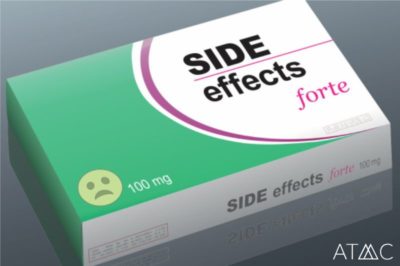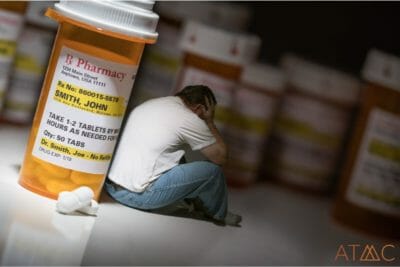Last Updated on June 9, 2022 by
Alternative to Meds Editorial Team
Medically Reviewed by Dr Michael Loes MD
Table of Contents:
- What is Prozac Used for?
- Is Prozac Addictive? Find more information here.
- Prozac Addiction Risk Factors
- Prozac, Sarafem, fluoxetine Common Side Effects
- Prozac, Sarafem, fluoxetine Common Withdrawal Symptoms
- Prozac Addiction & Dependency — How to Avoid Becoming Hooked
- Be Proactive, Not Reactive
- How to Discontinue Prozac Safely
- Long-Term Recovery from Prozac
Are you wondering if Prozac is addictive? It’s an important question. Prozac© is an SSRI, (selective serotonin reuptake inhibitor) antidepressant. According to research in the International Journal of Mental Health Nursing, a person who takes an SSRI long-term, such as Prozac, does risk developing Prozac addiction or dependency. More than half of antidepressant users experience withdrawal phenomena when they stop, an indicator that dependency has developed. The trend of repeating prescriptions for years upon years may portend a greater risk for Prozac addiction or dependence than was previously predicted.8
Prozac addiction is not particularly well-studied, but Prozac dependency has been documented in decades of research. Millions of people across the globe use antidepressants daily as a means to get through a crisis, trauma, or depression. Typically, an individual is prescribed Prozac to provide relief from such symptoms without any further investigation into the root causes of the problem. There are other ways that have been documented as efficacious to resolve a depressed state or other unwanted symptoms and do not subject the person to the risk of Prozac addiction, dependency, or a lifetime of drug side effects.7 These will be discussed in more detail below.
What is Prozac used for?
Prozac has been FDA approved for specific uses, listed below. Off-label uses have also developed, as seen below.1,3
Prozac is FDA-approved to treat the following conditions:
- MDD or major depressive disorder
- Combined with olanzapine (Zyprexa©) for the treatment of depressive episodes of Bipolar disorder
- Combined with olanzapine for treatment-resistive depression
- OCD, obsessive-compulsive disorder
- Panic disorder with or without agoraphobia (fear of open spaces, also refers to any extreme fear response to situations or places)
- Bulimia nervosa (eating disorder)
Fluoxetine is also marketed as Sarafem© to treat PMDD (premenstrual dysphoric disorder), a disorder in which women experience depression symptoms, tension, or irritability related to menstruation. Sarafem carries the same suicide warnings as Prozac and all SSRI drugs.
Off-label uses for Prozac include:
- Anxiety disorders
- Social phobias
- PTSD
- Borderline personality disorder
- Raynaud phenomenon
- Selective mutism
Is Prozac Addictive? Find more information here.
Drug regulators did not study or document the risks of Prozac addiction before approval. Even now, more than 30 years after, the 1987 label as well as two later revisions, in 1999 and 2017, also state no studies have been done on Prozac addiction as a potential outcome.1
Prozac is most often referred to in medical literature as a psychotherapeutic agent. Despite the fact that antidepressant prescriptions doubled in the decade from 2005 to 2015, oddly, only a small number, estimated at about 14% of patients report improvement from antidepressant drug therapy. Studies suggest that about 75% of reported benefits from antidepressants are actually from the placebo effect. Yet long-term dependency can develop after long-term use.6
There are a growing number of case reports outlining instances of Prozac non-medical (recreational) use, dependency, abuse, and misuse, as well as documenting the exponential rise in the number of antidepressant prescriptions globally.2,5
The 2012 National Survey on Drug Use and Health4 shared the following results:
- that 2.4 million persons aged 12 or older used psychotherapeutics for nonmedical reasons.
- that 8.5% or 22.2 million persons aged 12 or older reported substance dependence or abuse.
- that between 6 and 7 million persons aged 12 or older reported recreational use of prescription drugs (sedatives, tranquilizers, stimulants), totaling more than users of cocaine, hallucinogens, inhalants, and heroin combined.
The survey numbers are over 10 years old now. While the number of case reports we found of individuals becoming ” addicted to Prozac ” is about 20, the number of reports of dependence and difficulties when withdrawing from Prozac are so numerous as to be uncountable. Adding to the equation the ongoing exponential rise in numbers of prescriptions of SSRIs it becomes clear that Prozac addiction and dependence treatment is a crucial element hitting drug rehabs globally. And suggests as well that alternative methods of mental health treatment that do not induce the negative outcomes associated with drug-based treatment are destined to play a major role in human health.7
So while efficacy results are mixed, the number of prescriptions is still rising. And, there is now a growing number of studies that document the risk of addiction and drug dependence for some individuals taking Prozac whether as a recreational drug or as a prescribed psychotherapeutic drug.
 Insomnia
Insomnia Taking any kind of medication for a symptom can easily turn into a long-term, chronic habit. Being able to alleviate symptoms of anxiety, depression, fear, sleeplessness, or even pain through a pill is a very attractive way to forget about things and move on with life.
Taking any kind of medication for a symptom can easily turn into a long-term, chronic habit. Being able to alleviate symptoms of anxiety, depression, fear, sleeplessness, or even pain through a pill is a very attractive way to forget about things and move on with life.







